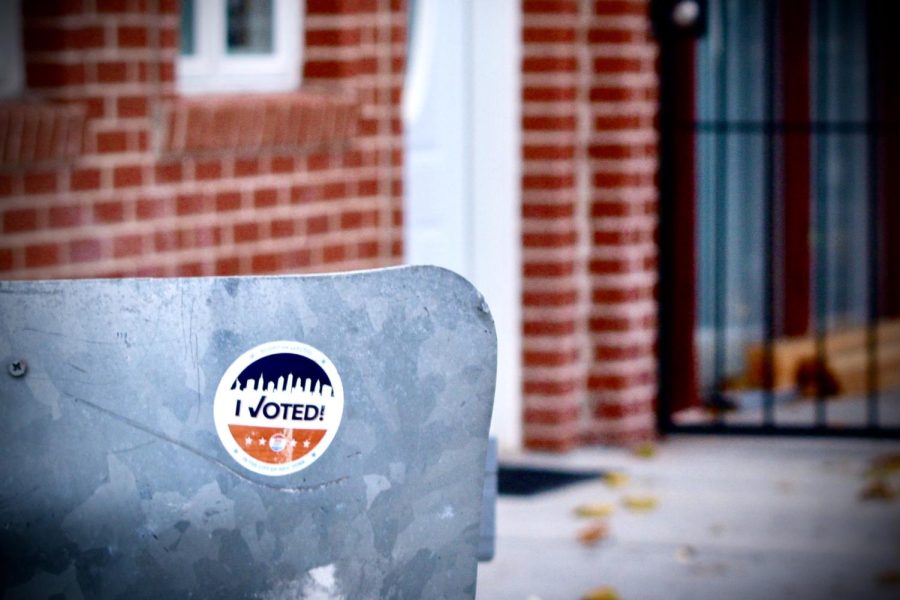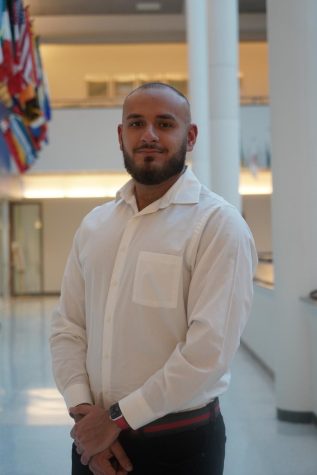Everything you need to know ahead of the midterm election
November 6, 2022
Early voting has started in New York for this year’s midterm elections with Election Day on Nov. 8. With so much on the ballot, The Ticker has prepared a guide to everything New York voters can expect to see on their ballots.
Early voting/Election Day hours
Early voting across New York State kicked off on Oct. 29, and will continue through Sunday, Nov. 6.
In New York City, the voting hours are as follows: Oct. 29 and Oct. 30 from 9 a.m. – 5 p.m., Oct. 31 from 7 a.m. – 3 p.m., Nov. 1 and Nov. 2 from 10 a.m. – 8 p.m., Nov. 3 from 10 a.m. – 6 p.m., Nov. 4 from 7 a.m. – 3 p.m. and Nov. 5 and 6 from 9 a.m. – 5 p.m.
In New York City only, voters are restricted to one early voting site. Voters can go to the New York City Board of Elections’ website, linked here, to find out where their early voting and Election Day poll sites are. The two could be different.
For every other New York county, voters are able to cast an early vote at any poll site in the county. The hours will vary by county, so be sure to consult with your county’s website to confirm the poll sites’ hours..
On Election Day, every poll site in New York State will be open from 6 a.m. until 9 p.m. As long as you get on line before 9 p.m., you have the right to cast a ballot, even if you get on line at exactly 9 p.m.
The candidates
There is a lot on the ballot this year, from state to federal offices.
The most notable election in New York State is the governor’s race. Kathy Hochul, the incumbent, will be running on the Democratic Party and Working Families lines, while Lee Zeldin will be running along the Republican Party and Conservative lines.
The position of lieutenant governor is also on the ballot this year. The lieutenant governor is the next in line, should the governor leave office for any reason, and is also the tie-breaking vote in the New York State Senate, should there be a tie vote on something. The incumbent Democrat Antonio Delgado and Republican Alison Esposito face off for this position.
The state attorney general position is also up for grabs. The attorney general is the chief prosecutor of the state’s laws. The incumbent Democrat, Letitia James, will square off against her Republican challenger, Michael Henry.
There is also a contest for the state comptroller position. The comptroller manages all of the state’s funds, audits, financial claims and provides financial guidance to local governments. The incumbent Democratic comptroller, Thomas DiNapoli, squares off against his Republican challenger Paul Rodriguez for the position.
Also in state politics, every state senator and state assemblyman is up for re-election. New York has 150 assemblymen and 63 senators, which comprise the New York State Senate and New York State Assembly. Voters will vote for one assemblyman and one state senator to represent their district.
At the federal level, every single member of the U.S. House of Representatives will be up for re-election. New York is divided into 26 districts, and therefore has 26 representatives up for re-election. Districts were redrawn this year, so some might find new names on their ballots.
Senate Majority Leader Chuck Schumer, Democrat, is looking to win a fifth term to the U.S. Senate this year, having held his seat since 1999. He is challenged by Republican Joseph Pinion.
With regards to the judiciary, New York State Supreme Court seats are up for election in all 13 districts. Unlike the name suggests, this is not New York’s highest appellate court, but rather its highest trial court. Voters will be instructed on how many judges to vote for on their ballots.
Finally, New York City civil court judges will be up on the ballot this year. The civil court decides financial disputes of up to $50,000 in value. There are 120 judges, but each borough votes for their own judges; each ballot will tell voters how many judges they can vote for.
Propositions
There is one statewide proposition for all New York voters, and three New York City propositions for city residents to decide on. Voters will have the option to vote “yes” or “no” on each question.
The statewide proposal is regarding the Clean Water, Clean Air and Green Jobs Environmental Bond Act of 2022. This would allow the sale of $4.2 billion in state bonds to fund environmental projects, environmental protection and restoration efforts.
The first city proposition would amend the New York City Charter, the city’s governing document, to add a preamble aspiring a “just and equitable city to all” and include that the city must strive to remedy “past and continuing harms and to reconstruct, revise and reimagine our foundations, structures, institutions and laws to promote justice and equity for all New Yorkers.” It is aimed to guide the city government’s duties.
The second city proposition would amend the Charter to create a racial equity office, plan and commission. It would require citywide and agency-specific racial equity plans every two years and would have a chief equity officer enforcing the office’s targets. The city council would make appointments to the commission with the mayor’s consultation.
The third city proposition would amend the Charter to create a “true cost of living” measure to track the city’s actual cost of living to influence policy decisions, noting the income necessary to meet peoples’ essential needs. It would require the city to annually report this.









